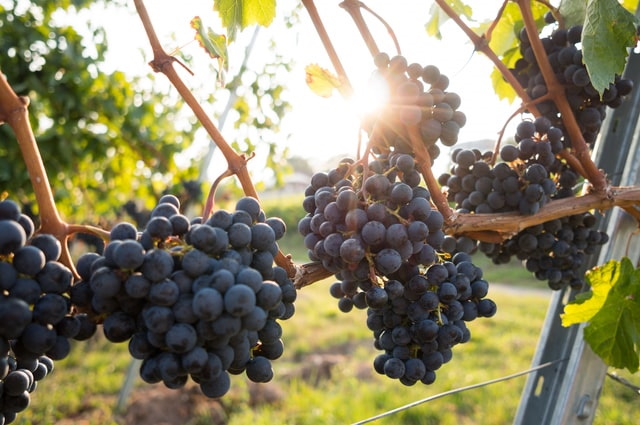
You’ve no doubt noticed the increasing number of products that carry the “organic” label - from organic fruits and vegetables to meat and poultry to beverages like milk and juice, just about everything has an organic option. This includes wine.
At their very core, organic wines are those that producers make using organically grown grapes. Every country has its own specific standards as to what constitutes organic. However, it generally means that the growers don’t use any artificial chemicals during the growing process.
That’s just the beginning. Then there’s the actual winemaking process. With conventional wines, some winemakers may choose to add ingredients to lengthen the shelf-life or enhance color. While organic wines can also have certain additives, they can’t make up any more than 5% of the total product. Nor can they have any genetically modified ingredients (GMOs).
In short, organic wines need to meet specific requirements to obtain organic certification. Some of these requirements, along with other components of organic wines, can set them apart from non-organic counterparts. This article focuses mainly on the requirements for organic labeling in the United States.
Reasons to Consider Organic Wines
You may be wondering, why buy organic wines? Read on for a few compelling reasons!
1. Growers Don’t Use Artificial Chemicals
When growing grapes conventionally, growers might spray artificial herbicides, pesticides, and fungicides to keep pests, fungi, and other harmful organisms at bay. One of the most well-known chemicals is glyphosate, a chemical weed killer. Napa banned use of glyphosate on all City of Napa land in 2019 due to the potential harm it poses to human health.
Organic wines start with organic grapes. That means growers don’t use artificial chemicals on their plants. For some, this can lead to the belief that organic wines are inherently better for your health. There isn’t any concrete proof that all chemicals used in viticulture (and other additives used in the winemaking process) are harmful. However, avoiding them can provide peace of mind, which can make you feel better about what you’re consuming.
2. Organic Wines May Be Better for the Environment
The lack of artificial chemicals on grape crops is better for the environment. These chemicals are, by their very nature, harsh and can have undesirable collateral effects. For example, some weed killers can harm butterfly populations. Butterflies (along with other insects like bees) play a crucial role in our ecosystem as pollinators.
Since vineyards growing organic grapes don’t use these chemicals, they help to protect pollinators. They also help to ensure better soil quality. Healthier soil can retain water and nutrients better, which is better for crop health.
3. Growing Organic Grapes Promotes Sustainable Farming Practices
Growing organic grapes is more than just the avoidance of potentially harmful chemicals. It also helps promote more sustainable farming practices overall.
These practices can involve such things as using cover crops to protect soil, animal manure instead of chemical fertilizers, and water conservation. The benefits include maintaining the integrity of the topsoil, managing weeds and pests without harming pollinators, and promoting biodiversity.
4. No Synthetic Additives or Added Sulfites
Organic grapes are just the start. The winemaking process also determines if a wine can carry the organic certification label. Even if a winemaker uses organic grapes but doesn’t follow the requirements during the winemaking process, the wine can’t be called organic. The most the label can say is “made with organic grapes.”
For a finished wine to be organic, it can’t have more than a set amount of certain additives. It also can’t have any added sulfites. While it may have some (which occur naturally, as they reside in grape skins), they can’t exceed 100 parts per million. Winemakers also can’t use genetically modified yeasts during fermentation, and they rarely add ingredients meant to improve shelf-life, color, or texture.
As with synthetic chemicals, avoiding these ingredients can make you feel better. You know what you’re putting into your body (and what you aren’t), which can provide peace of mind as you enjoy your favorite glass of cabernet sauvignon or merlot.
5. Organic Wines Are Typically Lower in Alcohol Content
Alcohol content varies by wine. Many conventional varieties can contain as much as 14% to 17% by volume. Depending on how a producer makes their wines, dry options may have less, generally 9.5% to 11%.
Since organic wines don’t have added sugar, there’s less for the yeast to convert into alcohol during the winemaking process. As such, they’re typically naturally lower in alcohol. Less alcohol and sugar can mean fewer (or no) headaches for some wine enthusiasts. If you’re particularly fond of the wine you’re drinking, it may also mean you can indulge in a second glass without going overboard.
Why Buy Organic Wines? The Case for Adding One or Two to Your Collection
Organic wines have many great benefits. While you don’t have to swap your favorite varieties and go all organic, they make a compelling case for adding at least one or two bottles to your overall collection. And, for wine enthusiasts who prefer organic products, organic wines give them an option to enjoy that they can share with friends and family (or with their favorite book). The next time you’re looking for a different version of your favorite wine variety, consider giving an organic bottle a try.
JJ Buckley Fine Wines offers a vast array of organic and conventional wines. No matter what the occasion or your preferred variety of wine, we’ve got you covered. And, if you need a bit of help, a consultation with our wine experts can help you find your next favorite bottle. For more information and to view our selection, visit JJ Buckley Fine Wines today.